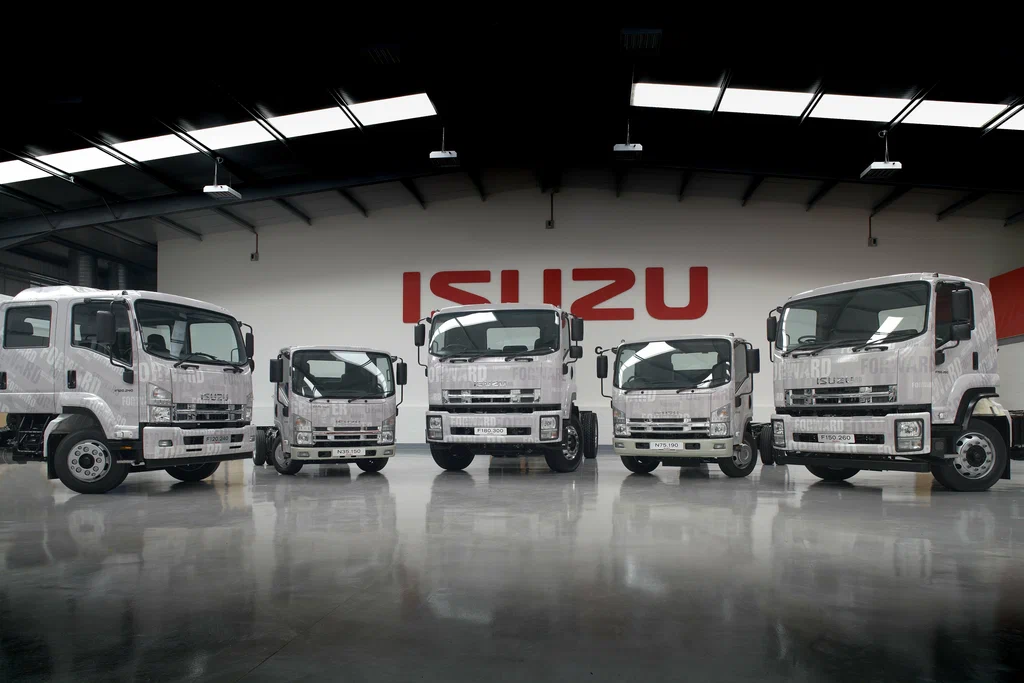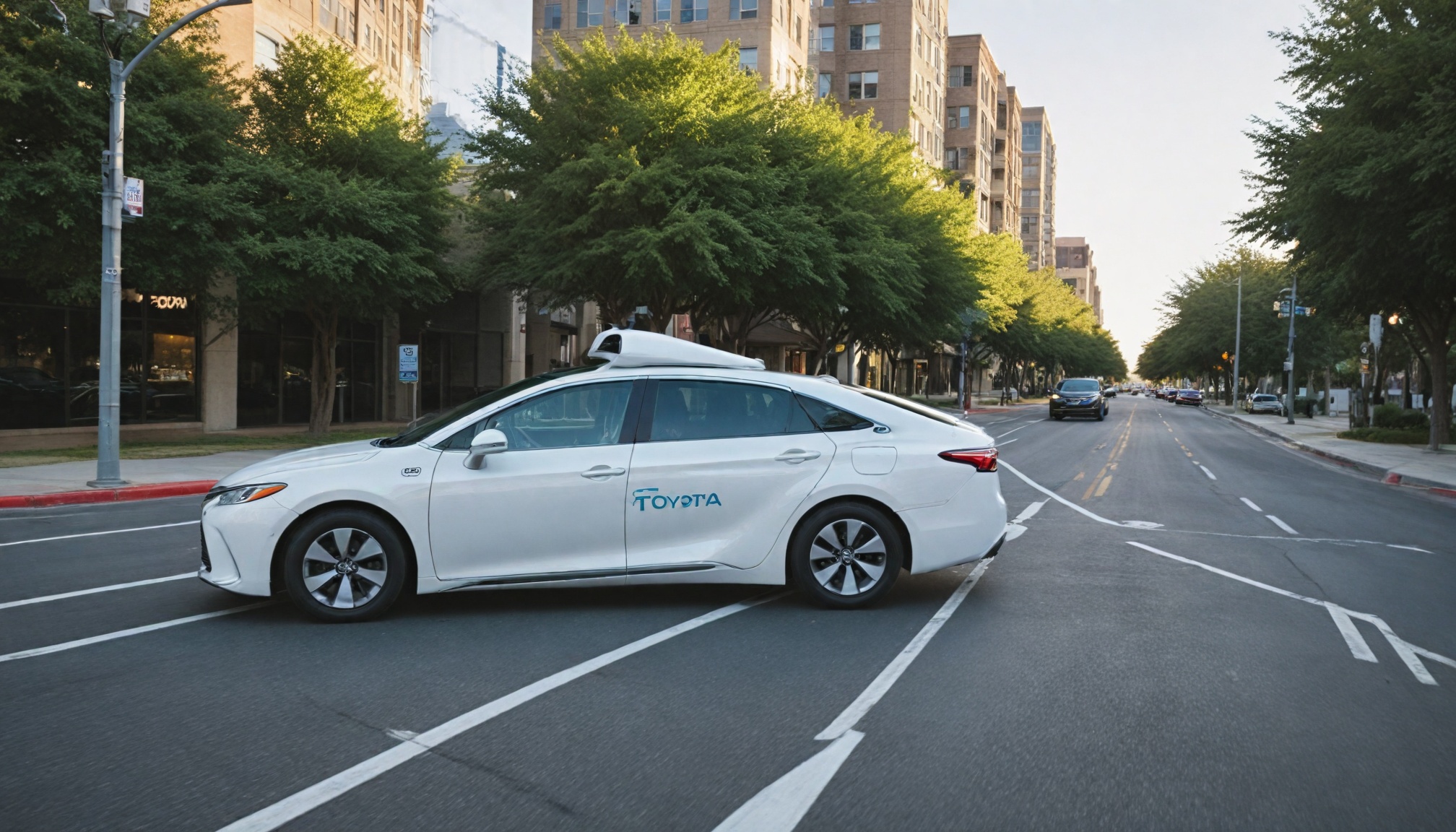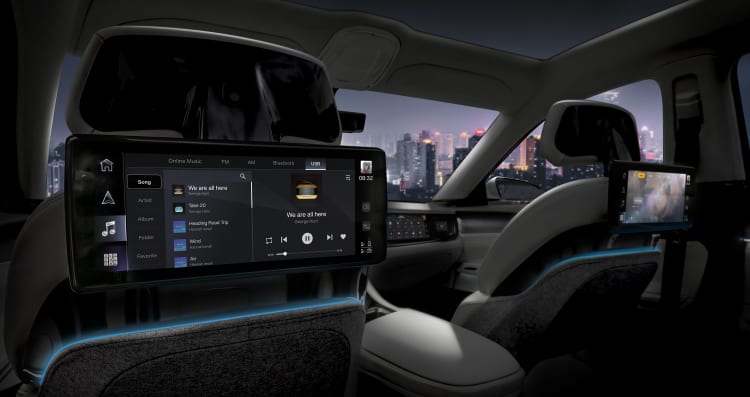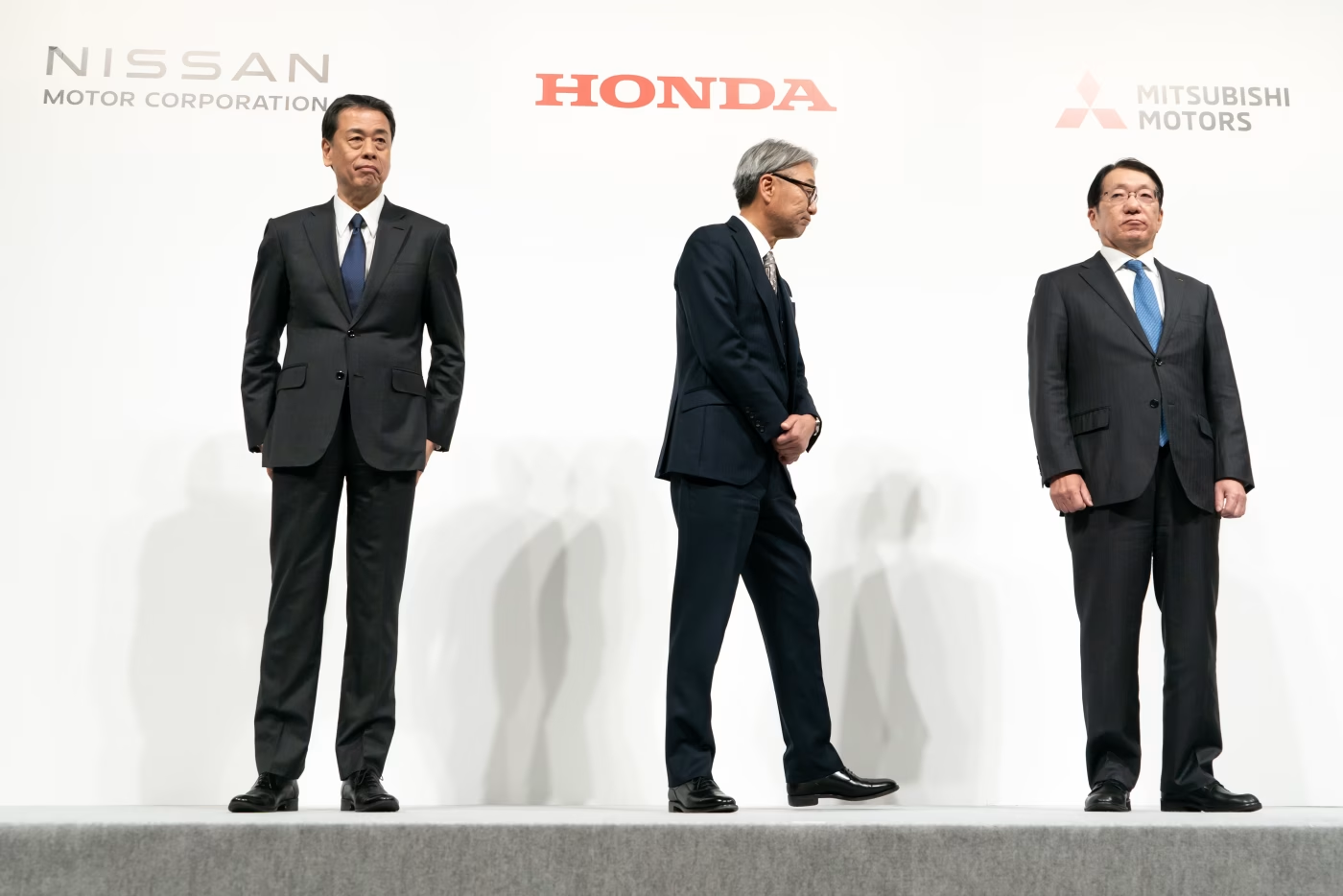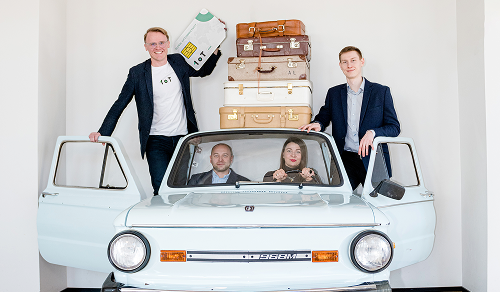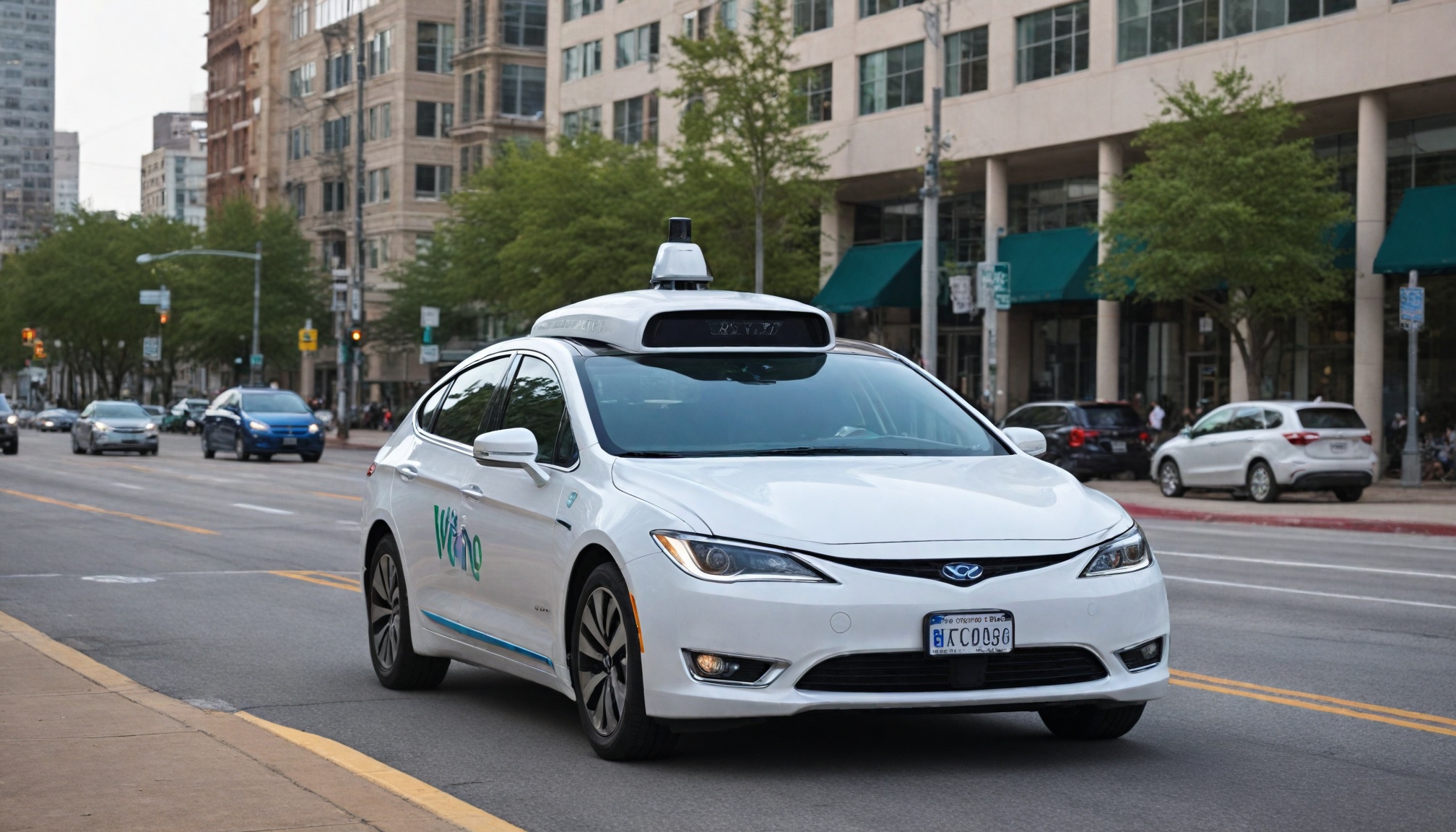
Waymo's 2026 Dallas robotaxi launch showcases how tech innovators and fleet managers can partner to scale autonomous mobility, transforming urban transportation through strategic operations.

Drivetech Partners
Waymo's upcoming 2026 launch of autonomous robotaxi service in Dallas represents a significant evolution in urban transportation, showcasing how strategic partnerships between technology innovators and traditional fleet managers can accelerate the deployment of driverless vehicles. The Waymo-Avis collaboration demonstrates a new operational model that addresses critical challenges in scaling autonomous mobility services while potentially transforming how people move through America's major cities.
Key Takeaways
Waymo's Dallas expansion is part of a broader national rollout that includes Miami and Washington D.C., following successful operations in cities like Phoenix and San Francisco
The first-of-its-kind partnership with Avis Budget Group creates a template for scaling autonomous vehicle services through specialized fleet management
Waymo has already completed over 250,000 trips in Austin and supports more than 250,000 paid trips weekly across all operating cities
The collaboration addresses key operational challenges like vehicle maintenance, charging infrastructure, and depot management that previously limited expansion
This evolution in transportation will create new job categories while potentially displacing traditional drivers, signaling a significant shift in urban mobility workforce requirements
Waymo's National Expansion Strategy: Why Dallas Matters
Dallas represents a strategic frontier in Waymo's ambitious national expansion plan. Set to launch in 2026, the Dallas service joins a growing network of Waymo operations across the United States, including existing services in Phoenix, San Francisco, Los Angeles, and Austin. What makes the Dallas implementation notable is its approach: unlike Austin, where Waymo partnered with Uber, the Dallas service will operate through Waymo's proprietary app.
The scale of Waymo's current operations demonstrates significant momentum. The company has logged more than 100 million autonomous miles on public roads and currently supports over 250,000 paid trips weekly across all operating cities. In Austin alone, Waymo has completed more than 250,000 trips, proving the viability of its autonomous driving technology in diverse urban environments.
Looking beyond Dallas, Waymo is considering further expansion into Houston, San Antonio, San Diego, Boston, New York, and even Tokyo. The company's testing fleet in Dallas currently consists of all-electric Jaguar I-Pace vehicles equipped with Waymo's distinctive autonomous driving technology.
The Waymo-Avis Partnership: Reinventing Fleet Management
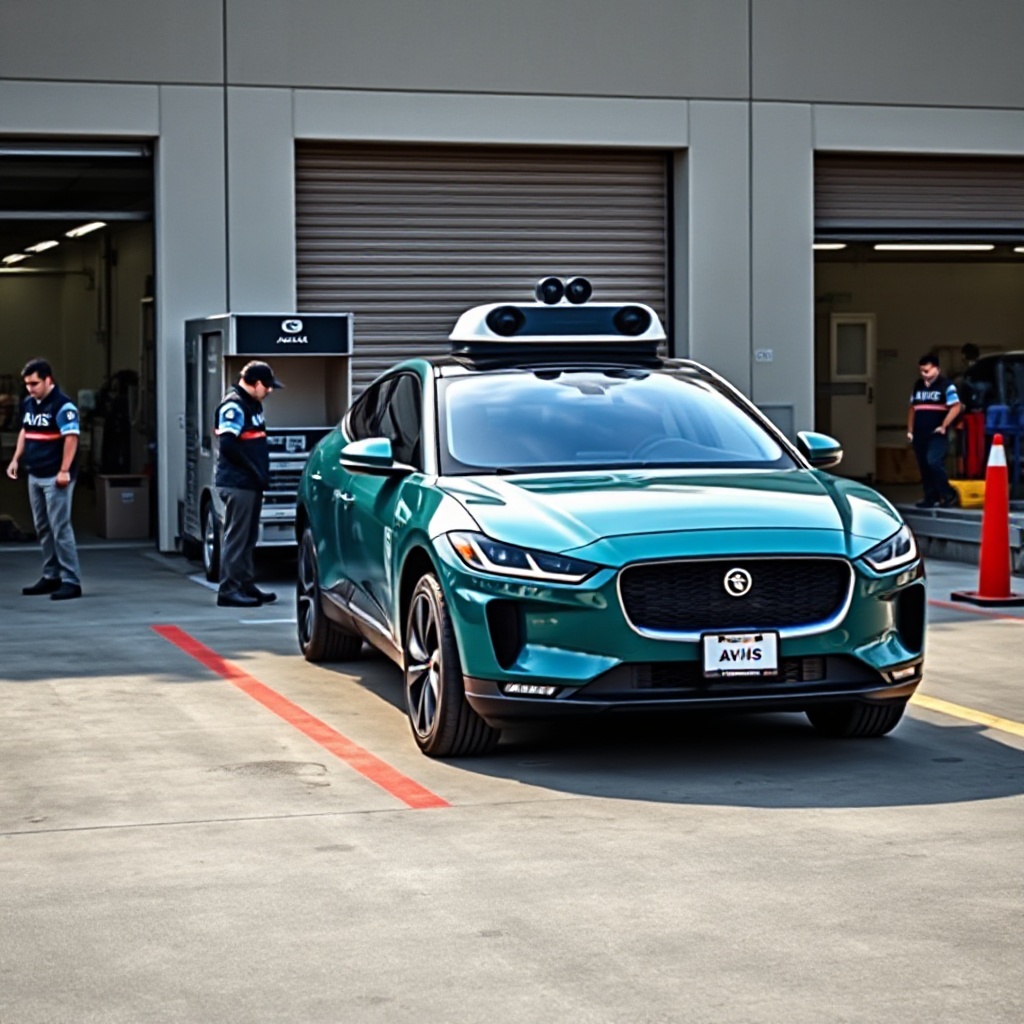
The multi-year strategic partnership between Waymo and Avis Budget Group marks a pivotal shift in autonomous vehicle operations. Under this arrangement, Avis will provide comprehensive fleet management services, including infrastructure, vehicle readiness, maintenance, and depot operations for Waymo's robotaxi fleet in Dallas.
This collaboration represents Avis's strategic pivot from traditional car rental to "mobility solutions," effectively monetizing the company's expertise in managing large-scale vehicle fleets. For Waymo, the partnership addresses a critical barrier to rapid deployment by allowing the technology company to focus on its core competency—autonomous driving systems—while Avis handles the complex logistics of fleet management.
As the first major partnership of its kind between an autonomous technology company and an established fleet manager, this alliance creates a replicable model for operational scaling that could be applied across other cities. The arrangement solves one of the most significant challenges in autonomous vehicle deployment: the need for specialized maintenance, charging infrastructure, and round-the-clock operational support.
The Competitive Autonomous Vehicle Landscape
Waymo's approach to the Dallas market highlights its unique position in an increasingly competitive autonomous vehicle ecosystem. While Tesla continues to promise nationwide robotaxi deployment (despite facing substantial legal and technical challenges) and Amazon's Zoox plans its Las Vegas rollout, Waymo has established itself as a leader through methodical city-by-city expansion and strategic partnerships.
Traditional ride-hailing companies like Uber and Lyft have taken a different approach, relying on partnerships with tech firms such as Waymo, Avride, Moove, and Mobileye rather than developing proprietary autonomous vehicle technology. This creates an interesting competitive dynamic in Dallas, where Waymo will operate its own fleet managed by Avis and accessed through the Waymo app.
Waymo's differentiated strategy combines technological leadership with strategic partnerships and app-centric service delivery. This approach allows the company to maintain control over the customer experience while leveraging specialized expertise for operational aspects of the service.
Overcoming Critical Challenges to Robotaxi Scaling
Scaling robotaxi services involves overcoming significant operational, regulatory, and technological hurdles. On the operational side, companies must solve complex urban navigation challenges, ensure round-the-clock vehicle readiness, and provide rapid maintenance—all issues now addressed through the specialized fleet management expertise of Avis.
Regulatory requirements present another layer of complexity, with each city requiring specific permits for autonomous vehicle testing and operation, ongoing safety audits, and legal compliance. Waymo's gradual expansion approach has allowed the company to develop expertise in navigating these varied regulatory environments.
The technological foundation of Waymo's service is built on its "Waymo Driver" system, which undergoes continuous updates and validation. The Avis partnership addresses critical logistical challenges that previously limited expansion velocity, allowing for more rapid deployment while maintaining Waymo's strict safety standards.
Public safety remains a paramount concern, requiring transparent reporting and compliance with local regulations. Waymo's extensive testing history—over 100 million autonomous miles—provides valuable data to support safety claims and regulatory approvals.
Transforming Urban Infrastructure for Autonomous Mobility
The successful scaling of autonomous vehicle fleets requires significant infrastructure adaptations, including dedicated depots, rapid charging facilities, and advanced traffic management systems. Cities looking to support autonomous vehicle services need to develop specialized pickup and drop-off zones and invest in communications infrastructure to support real-time fleet operations.
The Avis partnership accelerates this infrastructure development by leveraging existing facilities and expertise. This approach reduces the need for Waymo to build entirely new operational centers, allowing for more efficient deployment of resources.
Urban planners must consider the long-term implications of autonomous vehicle services for parking, curbside management, and traffic flow. The strategic location of depot facilities will determine service efficiency and coverage areas within Dallas, influencing which neighborhoods gain early access to robotaxi services.
Reshaping the Transportation Workforce
The rise of autonomous vehicle services will inevitably lead to significant labor market transformations. Job displacement among traditional ride-hailing and taxi drivers is anticipated as autonomous fleets scale, creating economic and social challenges that require thoughtful management.
However, new opportunities are emerging in depot operations, fleet maintenance, software support, and mobility management. Avis's strategic repositioning exemplifies this transformation, creating high-skill support roles for autonomous systems that leverage the company's existing expertise in vehicle management.
Technical training programs are developing to bridge the skills gap for transportation workers, helping current drivers and fleet personnel transition to new roles in the autonomous vehicle ecosystem. This transition requires careful management to address potential socioeconomic impacts and ensure that benefits from automation are broadly shared.
The Passenger Experience and Social Impact
Waymo emphasizes a "safe and seamless" transportation experience, promising stress-free, available-anytime service that improves upon current ride-hailing options. The company's focus on reliability, reduced accidents, and potential price reductions through operational efficiency aims to make autonomous ride-hailing an attractive alternative to traditional transportation options.
Enhanced accessibility features benefit elderly, disabled, and transportation-disadvantaged populations, potentially expanding mobility options for those currently underserved by existing transportation networks. The environmental impact is also significant, with reduced emissions expected through the use of all-electric vehicles and optimization of vehicle deployment to minimize empty miles.
User interface innovations focus on passenger comfort, route transparency, and trip customization, addressing common concerns about autonomous vehicles through clear communication and intuitive controls. The overall goal is to create a service that feels both familiar enough to be comfortable and advanced enough to demonstrate clear advantages over conventional ride-hailing.
The Road Ahead: Implications for Future Urban Mobility
The Dallas launch serves as a prototype for autonomous vehicle-fleet partnerships in other cities, setting standards for operational best practices, safety validation, and municipal coordination. The success of this model will likely influence how other cities approach autonomous vehicle deployment and the partnerships they seek to facilitate.
Continuous expansion depends on three key factors: consumer adoption, regulatory approval, and fleet management capabilities. The Waymo-Avis partnership addresses the third factor directly, potentially accelerating the timeline for deployment in additional markets.
Looking further ahead, the partnership model may extend beyond ride-hailing to goods delivery and specialized transportation services, creating new opportunities for both companies. The lessons learned from the Dallas deployment will shape the evolution of urban mobility systems across the country, influencing everything from transportation planning to city design.
As autonomous vehicles become a more common sight on urban streets, the partnerships that enable their operation will become increasingly important. The Waymo-Avis collaboration represents an early example of the cross-industry alliances that will define the future of transportation—bringing together technological innovation and operational expertise to create new mobility solutions for tomorrow's cities.
ABC News - Waymo plans to dispatch robotaxis in Dallas next year - driverless expansion
Automotive World - Avis Budget Group announces multi-year strategic partnership with Waymo
DriveTeslaCanada - Waymo to launch fully autonomous robotaxi service in Dallas by 2026
Electrek - Waymo announces expansion in Dallas, partners with Avis
Los Angeles Times - Waymo and Avis plan Dallas robotaxi launch
